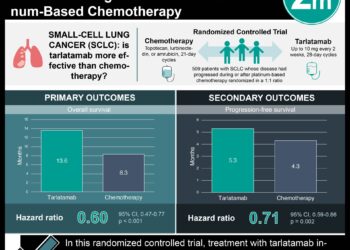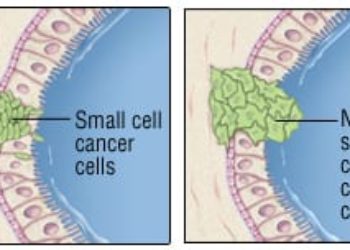Prediction tool helps tailor lung cancer screening to patient benefit and preferences
1. Prediction tool may help physicians better personalize screening discussions with patients.
2. Benefits of the prediction tool, low-dose computer tomography (LDCT), was shown to be highest in patients with higher-risk for lung cancer and longer life expectancy.
Evidence Rating Level: 2 (Good)
Study Rundown: Lung cancer is one of the most common cancers worldwide, with high morbidity and mortality. As a result, many preventative health measures are in place, including secondary prevention screening measures. The National Lung Screening Trial (NLST) in 2011 found that annual screening with LDCT resulted in significant reduction in mortality from lung cancer. Healthcare systems are currently determining the best methods in which to implement such a screening tool. The purpose of this study was to identify factors that influence when LDCT screening is preference-sensitive. This study had several limitations. First, there may have been variation in the quantitative thresholds identified in the study based on the microsimulation model structure. Second, risk estimates may have differed depending on the prediction model used. Overall, this study suggested that the LDCT might help tailor lung cancer screening to patient benefit and preferences.
Click to read the study in Annals of Internal Medicine
Relevant Reading: Low-dose CT for lung cancer screening
In-Depth [retrospective cohort]: The authors developed a state-transition microsimulation model in order to assess factors that influence LDCT. Large data sources were utilized in the model, including two randomized trials and the Surveillance, Epidemiology, and End Results cancer registry. Primary outcomes included lifetime quality-adjusted life-year gains and reduction in lung cancer mortality. Secondary outcomes included the rate of false-positive screening results and over diagnosis associated with LDCT screening. It was found that the model estimates aligned well with current statistics, including cancer incidence, mortality, and stage distributions. Overall, the results of the simulation study showed a 22.7% RRR in lung cancer mortality after 6.5 years of follow-up with 3 LDCT screens compared to no screening (95% uncertainty range, 22.2% to 23.3%). Further, it was noted that the clinical benefit of LDCT screening depended on patient life expectancy and annual risk for lung cancer. Benefits were greatest in patients with high risk for lung cancer and long life expectancy.
Image: CC/Wiki
©2018 2 Minute Medicine, Inc. All rights reserved. No works may be reproduced without expressed written consent from 2 Minute Medicine, Inc. Inquire about licensing here. No article should be construed as medical advice and is not intended as such by the authors or by 2 Minute Medicine, Inc.







